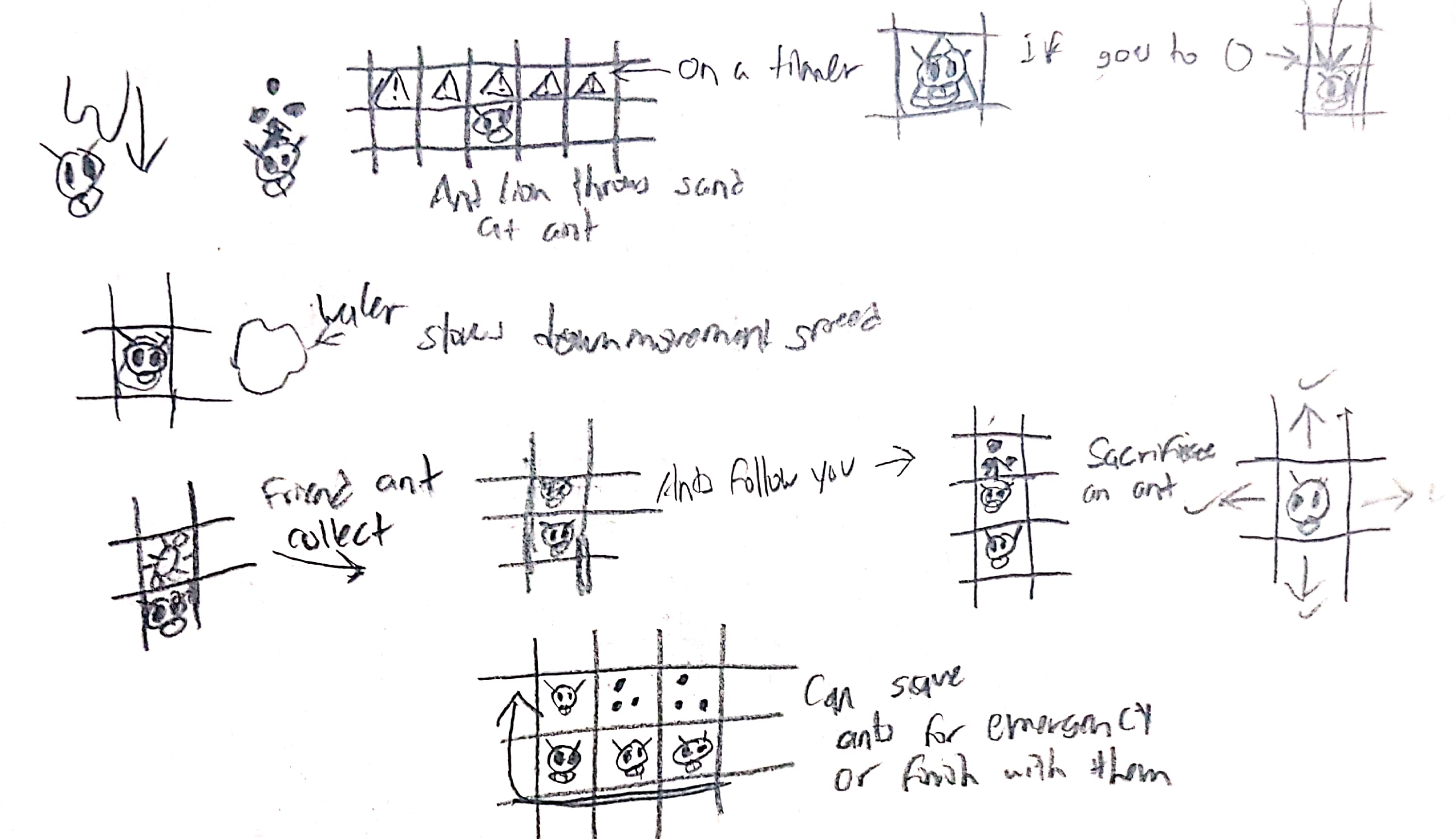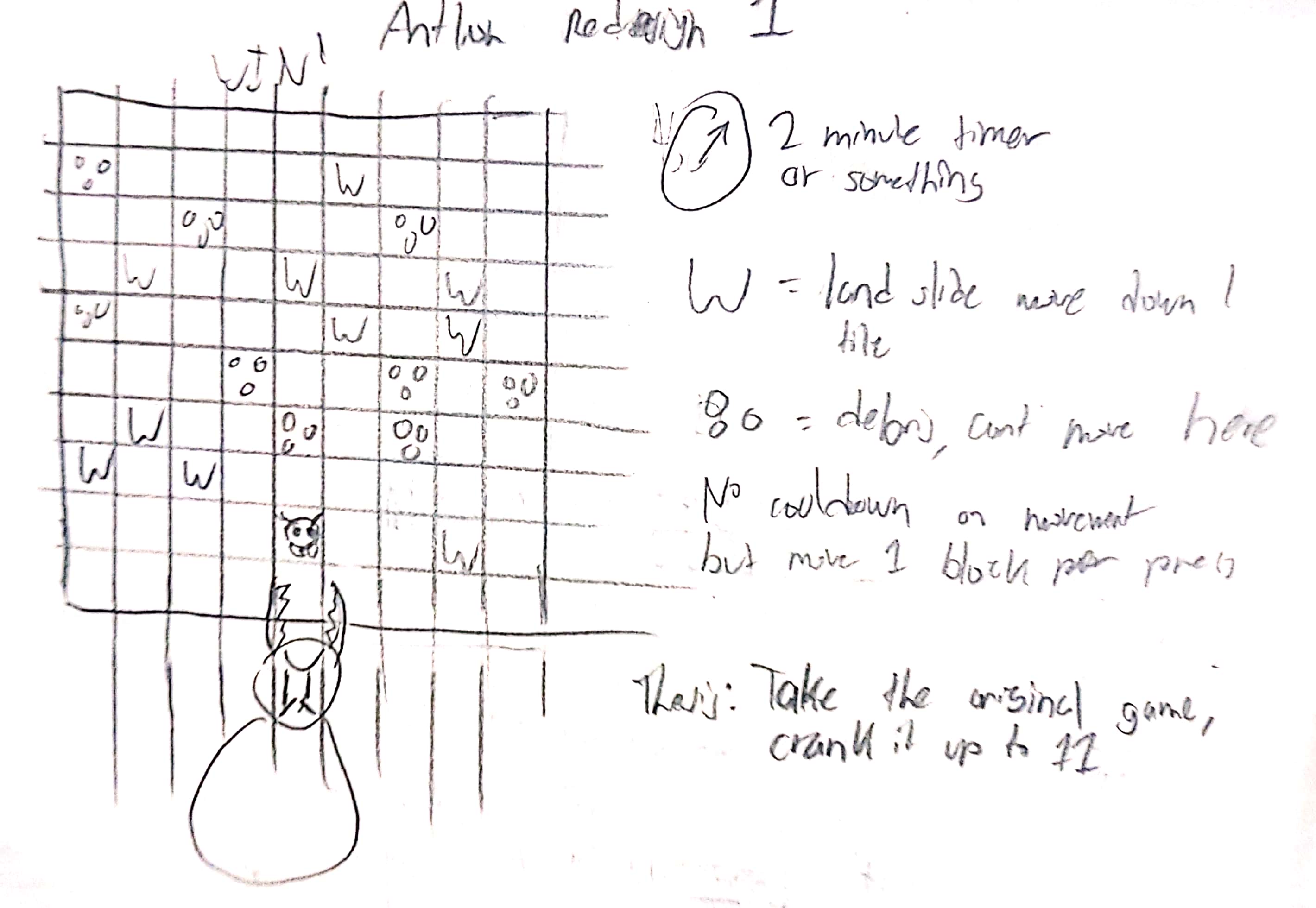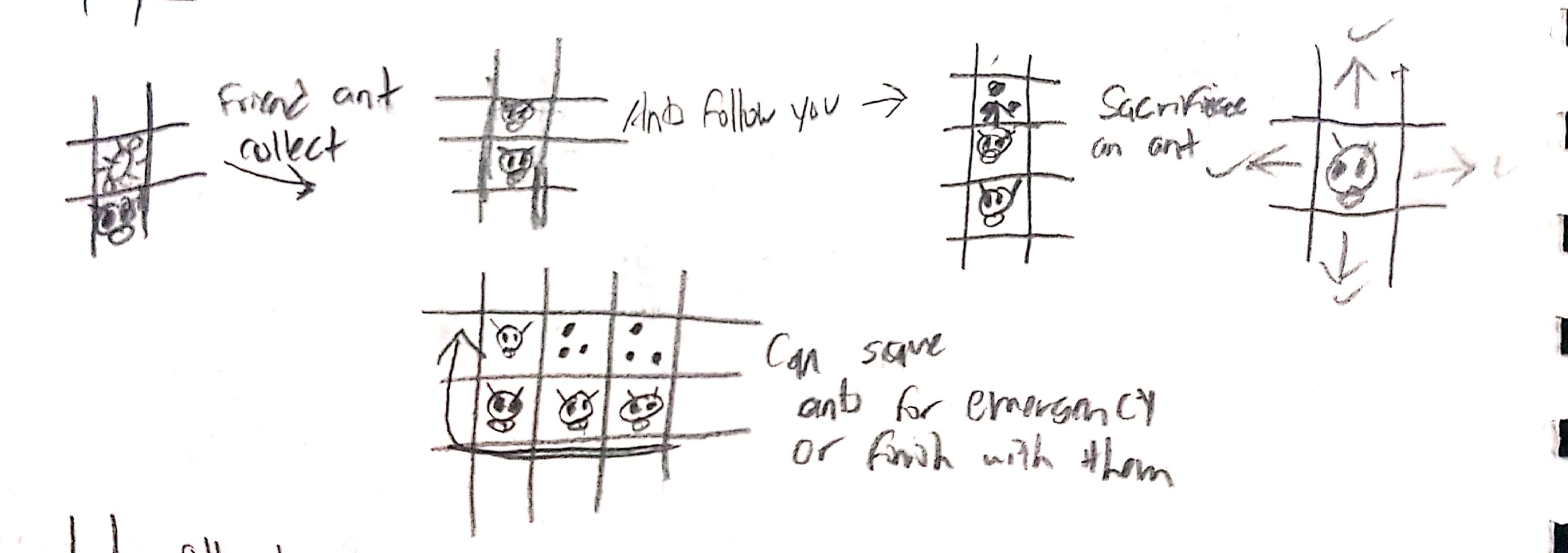
Ant Blast
Game Development Project

Game Development Project
On my fall 2020 semester, I took a Foundations of Game Design course in SFU’s School of Interactive Arts and Technology. My team was tasked to redesign a game and introduce new mechanics to make it more fun and engaging. We had three weeks to complete the project and we used the Unity game engine to create it.
I lead the team on creating the game, its programming and the game design. My three other teammates, Christine D., Joyce L., and Kylie X. were responsible for the game’s graphics and pitched in ideas for the game. I will be going through my progress of designing the game and its development.


These sketches above show my ideas for the game. The game’s concept was controlling an ant trying to escape an ant lion’s pit while trying to avoid obstacles and create a clear path. My teammates weren’t too familiar with game development, so I lead the team on designing the game. I suggested the idea of a game that made player think about their surroundings and create a fast route with a strict time limit. They liked this idea and we worked together to think about other obstacles such as including other bugs, throwing sand at the player, and making the game procedurally generated.

The game’s initial idea was the player can find other ants and sacrifice them to remove obstacles in the way. While pitching our game’s idea to our teaching team, they found the sacrificing mechanic to be a bit too morbid. In hindsight, it really wasn’t too good of an idea, but this concept of using up a limited resource to clear an obstacle still stuck in my mind. Our team would go back to the drawing board and think of new ideas to keep our game fresh and interesting.
A new mechanic I came up with was having the ability to push rocks around; It was inspired by block pushing puzzles in Legend of Zelda games. This gave the player more options on their pathing as they can alter the world around them without spending limited resources. Also, one of my teammates showed me a clip of Bomberman and I thought including bombs would be a great addition to our game because it can be a limited resource to remove obstacles. During this stage, I created the game’s basics such as movement, procedural generation, being chased, pushing rocks, and using bombs within a week.
We had playtesters try out our first prototype. Their comments and our observations found that the game’s balance needed to be tweaked, there needed to be more user feedback and a lot of bugs needed to be fixed. I had one week to implement a lot of changes, so I needed to prioritize what I needed to change. I first tackled the bugs, trying to fix issues that would cause the game to soft lock or heavily affect gameplay such as players getting caught between rocks. Once I finished fixing the large bugs, I started working on having clearer user feedback and my teammates bringing me the game’s final art assets really helped me hammer down this aspect.
All of the changes from playtesting I applied to our second iteration. For this course, this iteration would be the last deliverable we hand in, so I wanted to give it as much polish as possible. I practically had less than one week to work on this second iteration because other schoolwork needed my attention too. Other than the improvements I already touched upon, I made the ant lion track the player to create more urgency, created a scoring system and power ups, and created multiple difficulties. I also directed my teammates on the needed art assets, and I implemented them whenever they were ready. Long and sleepless nights were spent trying to get all this content in this game.
This project was received pretty well. The professor and TA liked our game and complimented it on its interesting game design. We had a chance to let playtesters try out the game and they were engaged and having fun. Though there were still some issues such as difficulty, UI and user feedback, overall, I thought the game turned out very well. This game gave me a chance to try something new and further my experience using Unity. I learned about the importance of playtesting and thinking of new possibilities to make a game more fun.
You can try out the game by downloading its files here. Unzip the file, run the exe file on a computer and enjoy!
Download for Windows Download for Mac